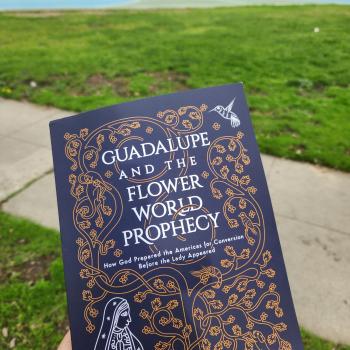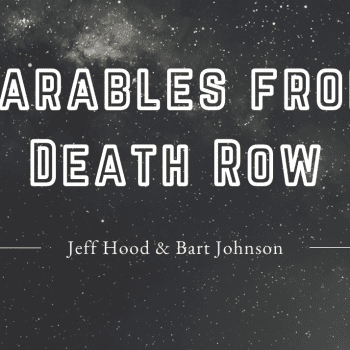Lectionary Reflections
Matthew 18: 15-20
September 4, 2011
If you've ever used a travel site like Trip Advisor you've seen comments people leave about places they've visited, hotels, and tourist attractions. The comments may be positive: "Great service. Lovely setting. Comfortable beds. Excellent food." They may not be so positive. "Thin walls. Cold soup. Hot room. Weak coffee."
In my journey through Matthew's gospel, I might leave comments regarding this Sunday's brief text on the Gospel Trip Advisor site like:
Author shows arrogant attitude toward those who disagree with him. Confrontative approach to conflict resolution. Negative ethnic and vocational stereotyping (v. 17). Unrealistic promises (v. 19).
It is tempting as a gospel traveler, to skip over this port of call in search of more likeable textual destinations. Sandwiched between two sweet texts, one a lovely story about the Good Shepherd and the lost sheep, the other an inspiring moral lesson on forgiveness, reading Matthew 18:15-20 is like biting into a delectable looking sandwich, only to find the filling tastes "off." It's not the right filling for this sweet bread.
That's a first impression anyway. We've all heard the expression "First impressions count." And they do. They're just not always accurate. I recommend to my preaching students that they record them anyway. I recommend that they read a text as if they've never heard it before, jotting down first impressions, thoughts, responses, and feelings about a text. This includes objections to a text, to what it says or seems, on the surface, to be saying.
First impressions, even they turn out to be inaccurate, can lead to deeper questions and deeper understandings. Linguist and philosopher Paul Ricoeur recommended that we engage in what he called a "naïve reading" of a text. That is, read it as if you've never read it before. And ask the kinds of questions and raise the kinds of objections you would if you were new to the text.
If I stopped with a naïve reading and went no further, I'd go ahead and type in my scathingcomments on my Gospel Trip Advisor site. "Don't bother visiting Matthew 18:15-20. It's mundane and it's harsh."
But maybe I'd better actually visit the text and check out its surroundings a little more thoroughly before I warn people to skip it. Maybe I'd better articulate and explore my objections in more depth. Two broad objections arise from my initial reading. The first is, why is Jesus addressing such a mundane topic (conflict in the church) at such a momentous juncture in his life and ministry? His Galilean ministry ended at the end of chapter 17. At the beginning of chapter 19 he turns toward Jerusalem and the cross. Why, in chapter 18, does he address what seem to be mundane matters like church leadership (18:1-5), pastoral care (18:6-14), and conflict management and resolution (18:15-20)? As Thomas Long asks in his commentary on Matthew, at this crucial point in his life and ministry, why does Jesus choose to teach a workshop on church polity?? (Long, 202)
So the first broad objection is, why address this mundane topic at this momentous juncture?
The second is, why address it in a way that includes a provision for severance of relationship?
Reading this as if I've never read it before, I am troubled by the arrogance that never doubts that if I'm miffed with someone, they're in the wrong. The repeated visits to the "offender" could be seen, not as loving persistence, but as harassment and bullying. First one, then several people, then an entire church seek to persuade and finally, are willing to take the step of excommunicating the "offender." The conferral of heavenly authority on this severance of someone from community (Mt. 18:18) and the seemingly blanket assurance of divine support of human decisions (18:19) are equally troubling to me.
Naïve readings give the reader some leads to chase down, but need to be followed by deeper exploration. In this case, deeper study leads to insights that mitigate my initial judgments about the mundanity and apparent harshness of this text.
Why so mundane a topic?
In hindsight, the inner life of the church, including conflict resolution, was a good choice of topic here at the hinge between Jesus' life and his death. The church would live on after Jesus' death. As the embodiment of the kingdom of God on earth, it needed guidelines on how to be more than just another organization that needs members and money. It needed guidelines on how to be a countercultural body, in which "leaders serve instead of swagger, where the weak are nourished instead of cast aside, where people who lose their way are not forgotten but sought and restored, where people cultivate mercy and forgiveness as if they were the rare flowers of heaven." (Long, 202-3)





